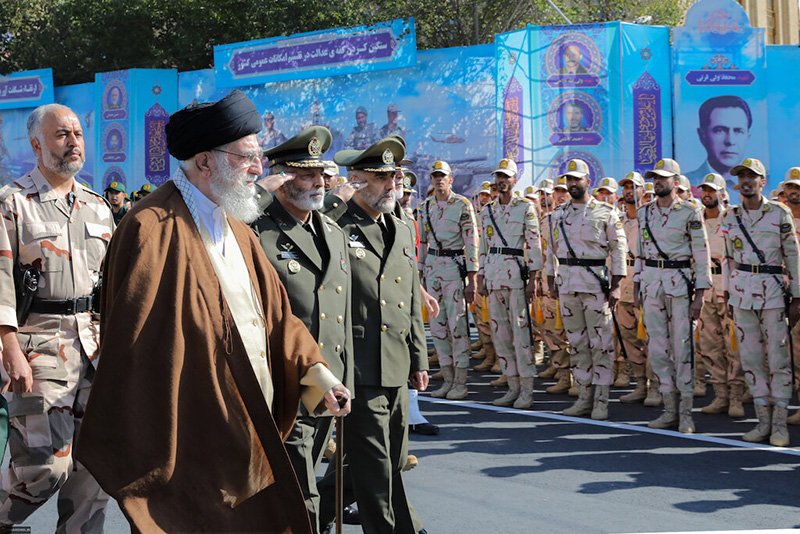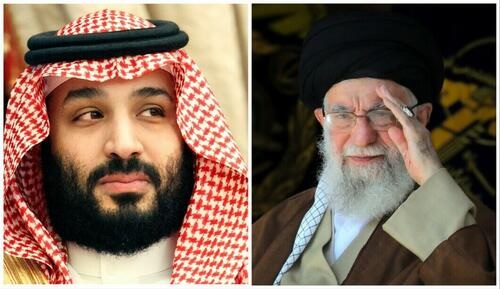 Morgan Muir, a senior U.S. intelligence official
Morgan Muir, a senior U.S. intelligence official
The information has fueled doubts in the United States that Iran, a longtime supporter of the Palestinian militant group, played a direct role in planning the assault in Israel.
The United States has collected multiple pieces of intelligence that show that key Iranian leaders were surprised by the Hamas attack in Israel, information that has fueled U.S. doubts that Iran played a direct role in planning the assault, according to several American officials.
These key Iranian officials did not know the attack was coming, according to the intelligence. The United States, Israel and key regional allies have not found evidence that Iran directly helped plan the attack, according to the U.S. officials and another official in the Middle East.
While they would not identify the Iranian officials who expressed surprise at the attack, the U.S. officials said they were people who typically would be aware of operations involving the Quds Force, Iran's paramilitary arm that supports and works with proxy forces.
U.S. officials said the intelligence investigation was continuing and could turn up evidence that Iran or other states were directly involved in the Hamas operation. Senior officials said they were keeping an open mind, reviewing old intelligence reports and looking for new information.
Iran has provided large numbers of weapons and support to Hamas over many years. U.S. officials have made clear that they believe this makes Tehran broadly complicit in the attack. But that was a different issue than direct knowledge and involvement, they said.
Morgan Muir, a senior U.S. intelligence official, told members of Congress in a briefing on Tuesday that there was no direct link between Iran and the Hamas attack, U.S. officials said. Mr. Muir provided few details but told lawmakers that U.S. agencies had intelligence contradicting assertions that Iran had helped plan the attack.
The United States and its allies regularly track and monitor meetings between Quds Force leaders and their proxies and allies, including Hamas. But officials say there is no evidence that those meetings were used to plan the attack in Israel. While officials concede that there could have been other secret meetings that Western intelligence did not track, for now they have found no evidence of such meetings.
The U.S. officials spoke on the condition of anonymity to discuss the intelligence and requested that The New York Times not report the means of collection to protect sources and methods.
 Iran’s Supreme Leader Ayatollah Ali Khamenei at the graduation ceremony of the country’s military academies, Oct. 10, 2023
Iran’s Supreme Leader Ayatollah Ali Khamenei at the graduation ceremony of the country’s military academies, Oct. 10, 2023
Amidst growing speculations in the US about Tehran’s involvement in the Hamas’ attack on Israel last Saturday and the reported move by the Pentagon to despatch by the weekend a second aircraft carrier to the East Mediterranean, Iran’s Supreme Leader Ayatollah Ali Khamenei has spoken for the first time on the explosive situation, writes M.K. Bhadrakumar, Indian Ambassador and prominent international observer.
Khamenei spoke in Tehran on Tuesday in his capacity as the Commander-in-Chief of Iran’s Armed Forces choosing the occasion of the annual joint graduation ceremony for the cadets of Iran’s military academies to dwell on the topic.
In an unprecedented move, excerpts of Khamenei’s remarks have since been relayed in Hebrew to the Israeli audience.
Khamenei’s statement warns Israel against any rash moves that it may come to repent later. Khamenei anticipated Israel’s “irreparable defeat.” He said “the killing Palestinian men, women, children, and elderly, desecrating the al-Aqsa Mosque, beating worshipers, and letting loose armed settlers to attack the Palestinian people are among the atrocities committed by the Zionist regime.”
The bottom line is, in Khamenei’s words, “From the military and intelligence aspects, this defeat (of Israel) is irreparable. It is a devastating earthquake. It is unlikely that the usurping regime will be able to use the help of the West to repair the deep impacts that this incident has left on its ruling structures.”
Indeed, Israel faces a serious existential crisis due to the disunity within and the irrelevance of its military prowess to meet the challenges of the hybrid war it is experiencing. Iran, therefore, sees that the advantage lies with the axis of resistance.
Interestingly, Egypt has disclosed that it had warned Israel about an impending large-scale attack by Hamas but the latter failed to act on it. To be sure, there is going to be stocktaking within Israel at some point. Prime Minister Netanyahu will be hard-pressed to explain. On the other hand, typically, he will try to cover up and whip up xenophobia with war cries to distract attention.
In the big picture, it is inconceivable that given the catastrophic consequences, the US will dare to attack Iran. But the temptation will be there to roll back the Hezbollah in neighbouring Lebanon using the present opportunity and, second, seriously destabilise the Syrian situation while Russia remains preoccupied in Ukraine — that is to say, make a desperate attempt to undo the gains of the so-called Axis of Resistance led by Iran through the past decade and more. Therefore, there is no question that this remains a potential flashpoint as far as Iran is concerned, and Tehran will remain vigilant about not losing ground in the Levant.
The heart of the matter is that the US and Israel are confronting today a vastly different Iran than they have been used to through the past four decades and more since the 1979 Islamic Revolution. Consider the following:
- Iran is no more in isolation and it has successfully overcome the Western sanctions.
- BRICS membership is a game changer for Iran’s integration into the global community.
- Iran is a threshold state in its nuclear weapon programme, enjoying strong relationships with Russia and China and can even tilt the balance in the co-relation of forces in West Asia and neighbouring regions and even internationally.
- Iran is no longer entrapped in a debilitating regional rivalry with Saudi Arabia and the easing of the conflict situations in Yemen and Syria creates space for Tehran to manoeuvre on the diplomatic arena. (Iran’s foreign minister is actively coordinating with his counterparts in the region.)
All of this enables Iran to move to the next phase of development and advance its global presence and expand its influence. Suffice to say, Iran is steadily outstripping Israel in the power dynamic of the region. Being a much smaller country with an uncertain future which is called upon to adjust to the new reality of US retrenchment, Israel is no longer in the same league as Iran. The Hamas operation exposes this geopolitical reality.
A protracted war in Gaza will be a colossal drain on Israel’s resources and can only weaken the country. Its outcome remains anybody’s guess. But on the other hand, Israel believes that it has no diplomatic options, either. On top of it, if Hezbollah enters the fray, all that happened last Saturday in Israel will seem a picnic. With its massive stockpile of advanced missiles — close to 200,000 rockets trained on virtually every nook and corner of Israel — Hezbollah has the capability to destroy Israel comprehensively.
Principally, the deployment of two US aircraft carriers in Eastern Mediterranean is intended to send a strong message to Hezbollah. On the other hand, it also highlights that in addition to Ukraine and Taiwan, the West Asian theatre will continue to engage the US for a foreseeable future.
If this is not imperial overstretch, what is it?
Something has to give way, notes M.K. Bhadrakumar.

Iranian President Ebrahim Raisi and Saudi Crown Prince Mohammed bin Salman (MbS) held their first-ever telephone conversation to discuss "the need to end war crimes against Palestine.”
State-run news agency Saudi Press Agency (SPA) said MBS stressed the “necessity of adhering to the principles of international humanitarian law and expressed deep concern for the dire humanitarian situation in Gaza and its impact on civilians” and “reaffirmed the kingdom’s stance against targeting civilians in any way and the loss of innocent lives.”
MbS doubled down on his support for the Palestinian cause and his support for “efforts aimed at achieving comprehensive and fair peace that ensures the Palestinian people's legitimate rights.”
According to Mohammad Jamshidi, political advisor to the Iranian president, the crown prince warned that failing to recognize Palestinian rights would further inflame the situation, adding that “cooperation between Riyadh and Tehran can contribute effectively and quickly to putting an end to the conflict inside Palestine."
Raisi emphasized that the issue of Palestine “cannot be solved” without giving the Palestinians full rights.
This is pretty stunning. That MBS would agree to have his first conversation with Iranian president Raisi IN THE MIDST of this crisis, let alone what was said on that call regarding stopping the bombing of Gaza...
The current situation in Palestine results from “repeated miscalculations by Western countries, led by the US,” Raisi said.
“Iran and Saudi Arabia, as major players in the region, can support the oppressed Palestinian people in the current circumstances, which are sensitive circumstances,” Raisi added.
Raisi also warned, “the crimes of the occupation and the American green light will cause devastating insecurity for [Israel] and its supporters.”
read more in our Telegram-channel https://t.me/The_International_Affairs

 10:23 14.10.2023 •
10:23 14.10.2023 •






















